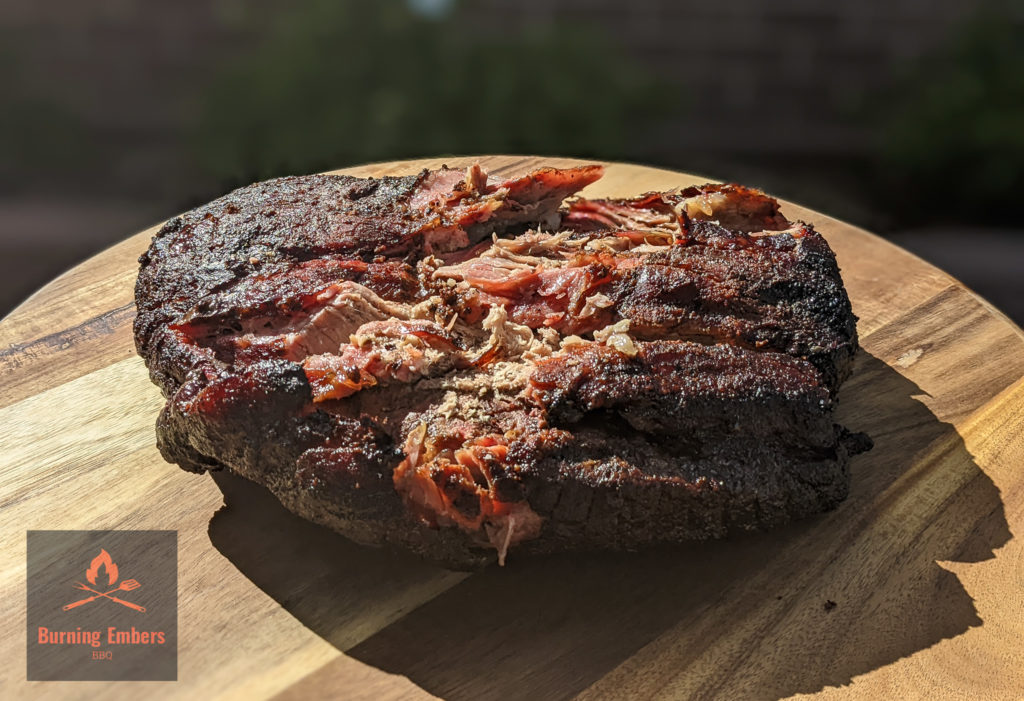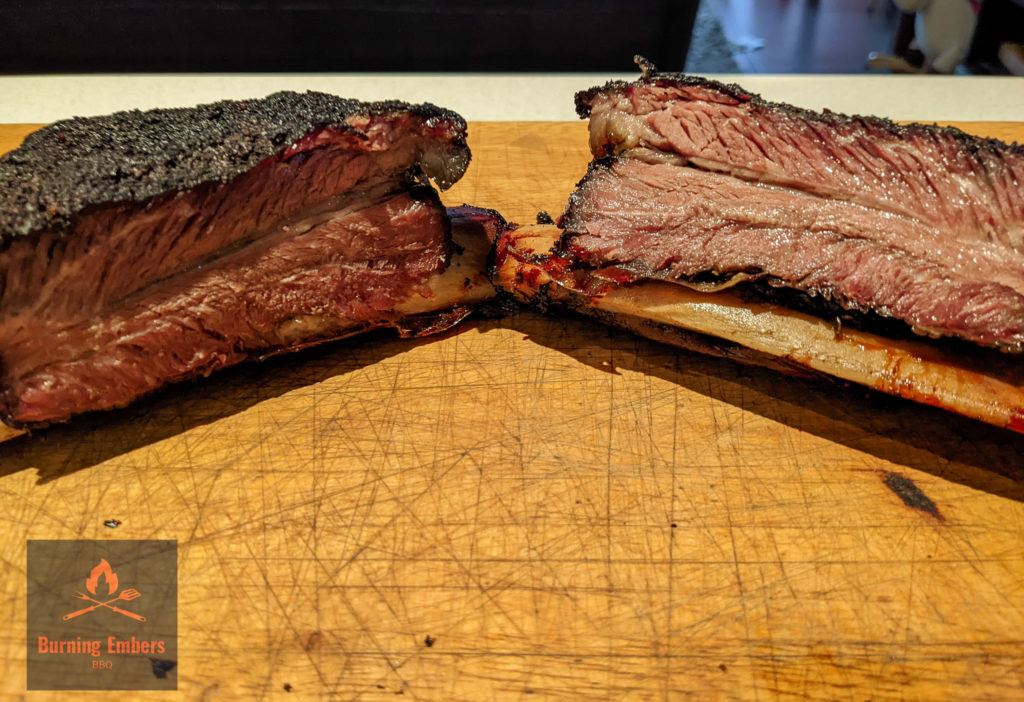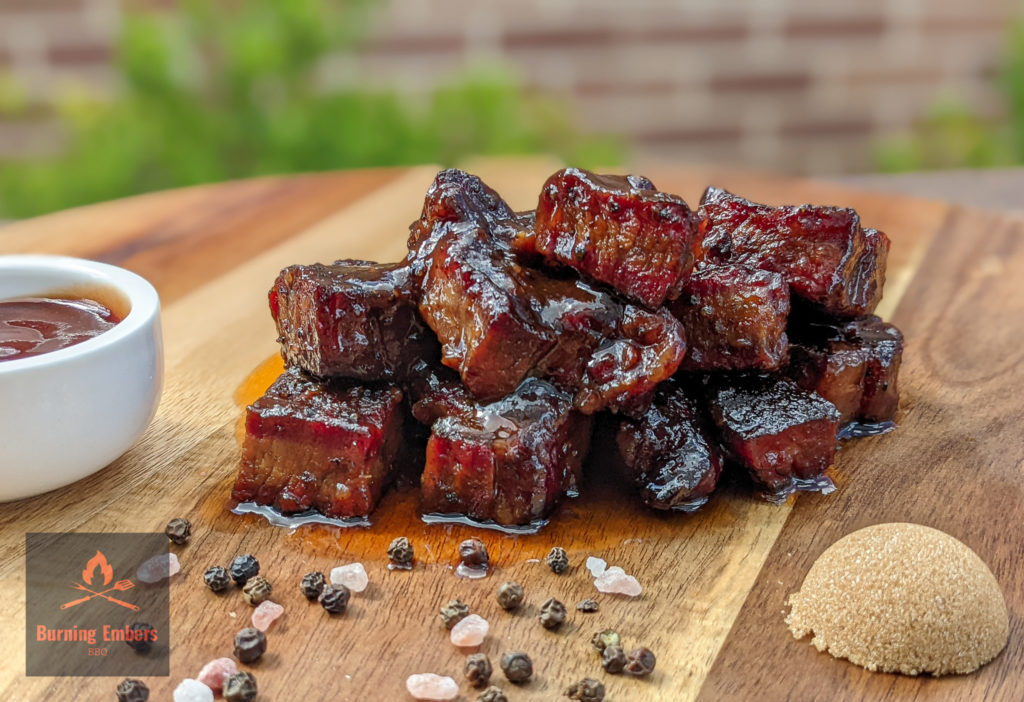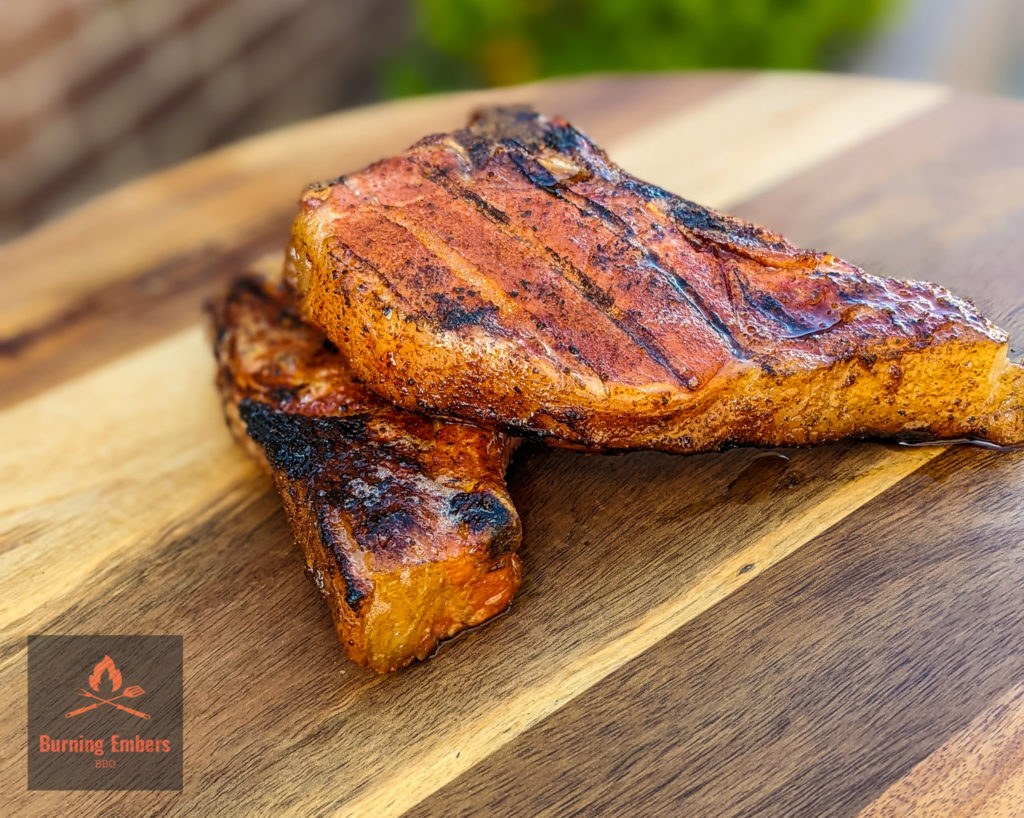baby brisket
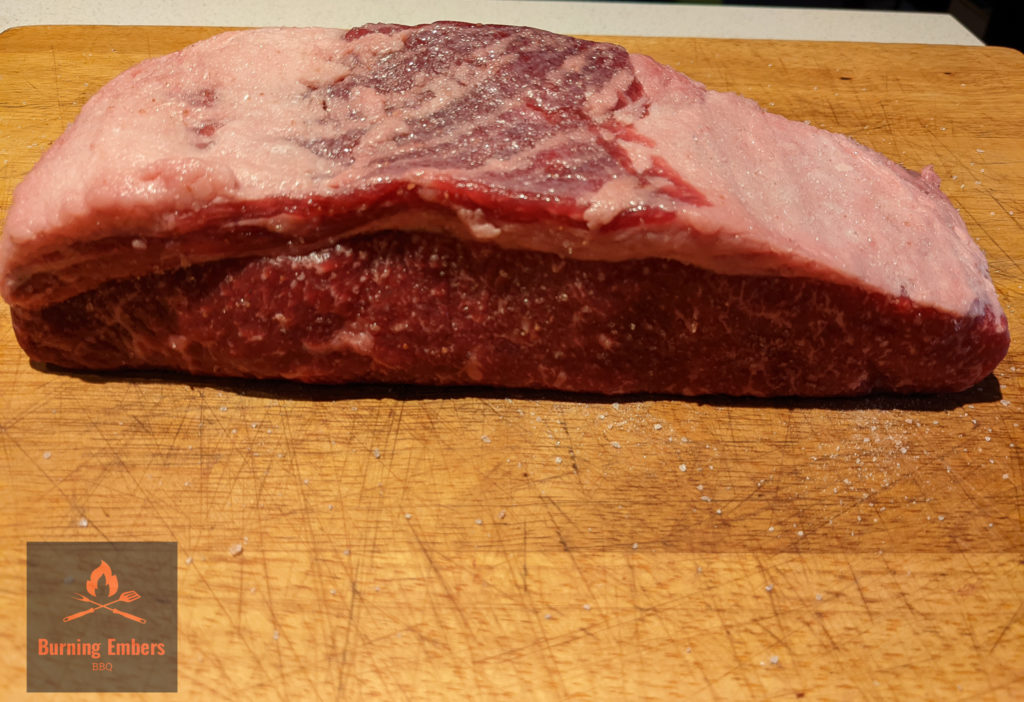
While looking for a full sized brisket at my local butchers, I came across this baby brisket. At only 1.2kg (around 2.5 pound) cut from flat/point, I wondered how it would go in the smoker. Could I start smoking in the morning (at a decent time, no 4AM wake up here) and have it well and truly ready by dinner time? Could it be as smoky, as barky, as tender and as juicy as a full sized brisket if I managed everything well and used some ”enhanced” brisket techniques? I just had to find out. Full disclosure – it was a very well marbled wagyu cross brisket, and it would be tricky doing a brisket of this size in the smoker and having juicy results!
perfect for brisket burgers for a small family
If this works out at 1.2kg (around 2.5 lb) there’s enough in this baby brisket to easily fill four brisket burgers as well as have spare. Once it cooked down there was around 700 grams (around 1.5 lb) of cooked brisket, and because it was small there was a deliciously generous bark/meat ratio!
I’m loving using my Akorn Jr kamado style smoker, so I tossed this baby brisket on there. With the lump charcoal I placed some pecan chunks and some hickory chips.
Brisket (especially one so small) isn’t a forgiving or easy cut to work with, but don’t let that intimidate you. Nor should you let the many steps noted below intimidate you either. While there’s a lot of steps none of them are particularly difficult, and with the right tools and care I’m sure you’ll be pleased with the results.
